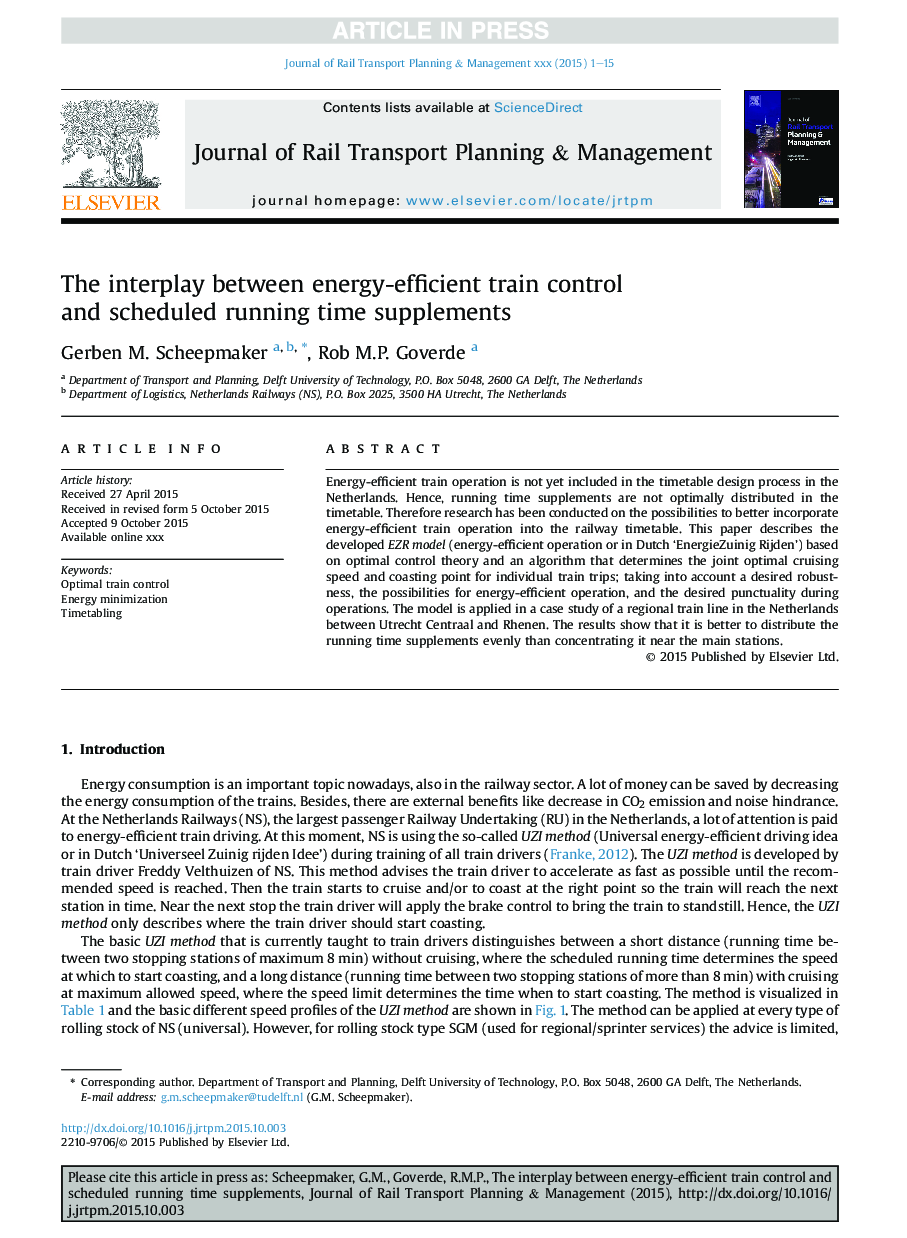| Article ID | Journal | Published Year | Pages | File Type |
|---|---|---|---|---|
| 10289154 | Journal of Rail Transport Planning & Management | 2015 | 15 Pages |
Abstract
Energy-efficient train operation is not yet included in the timetable design process in the Netherlands. Hence, running time supplements are not optimally distributed in the timetable. Therefore research has been conducted on the possibilities to better incorporate energy-efficient train operation into the railway timetable. This paper describes the developed EZR model (energy-efficient operation or in Dutch 'EnergieZuinig Rijden') based on optimal control theory and an algorithm that determines the joint optimal cruising speed and coasting point for individual train trips; taking into account a desired robustness, the possibilities for energy-efficient operation, and the desired punctuality during operations. The model is applied in a case study of a regional train line in the Netherlands between Utrecht Centraal and Rhenen. The results show that it is better to distribute the running time supplements evenly than concentrating it near the main stations.
Related Topics
Physical Sciences and Engineering
Computer Science
Computer Science Applications
Authors
Gerben M. Scheepmaker, Rob M.P. Goverde,
